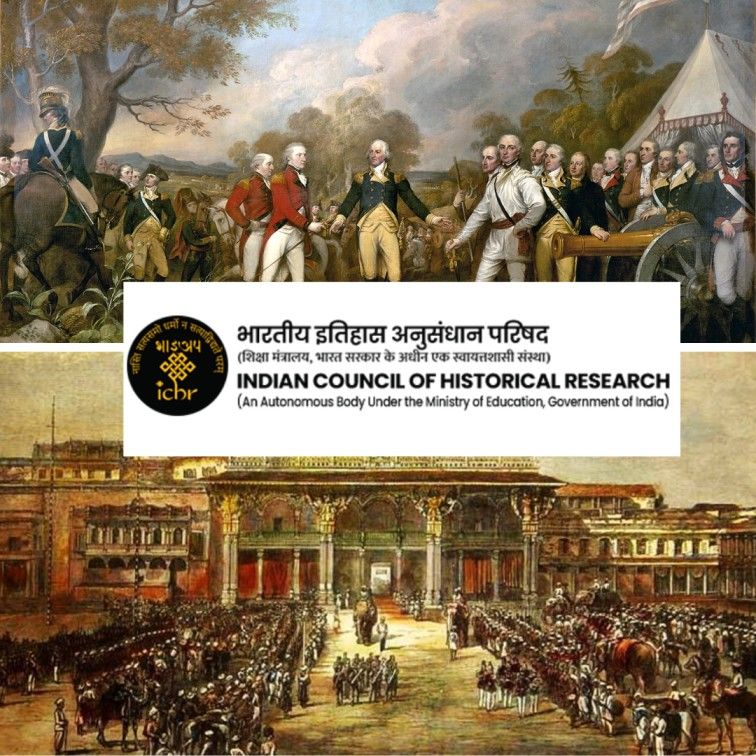
The Indian Council of Historical Research (ICHR) has launched a project to “rewrite” India’s history – from the time of the Indus Valley civilisation till present day — using sources available in vernacular languages and scripts, with an aim to give “due credit” to dynasties who have been “missed out” and “correct” texts that have been written in a “Euro-centric” way, officials said on Monday.
A project titled “Comprehensive history of India” will have 12-14 volumes and will be completed over the next three to four years. The first volume of the project will be released in March, 2023, said Umesh Kadam, member secretary of ICHR. He said the project will cover Indian history from the time of Rakhigardi (an archaeological site belonging to the Indus Valley civilisation in northern India) till today.
“The project has already kicked off and the first volume will be released in March, 2023. More than 100 historians from across the country are working on this project who are specialised in different areas. Under this project, everything about India will be rewritten through vernacular sources,” he said.
Kadam said the project will focus on representing the pride of India, and present Indian history through a “geocultural” perspective, and not with a “geopolitical perspective”.
Explaining the idea behind the project, he said that the council, an autonomous body under the Union ministry of education, will try to change the “Colonial understanding” of Indian history.
“The idea is to rewrite Indian history using Indian vernacular sources by giving equal representation to all the dynasties across India. To give due credit to those who have either been missed out or purposely put in the grey area so far,” he said.
“Colonial history has tried to separate the minds of people and nurtured ‘separatist’ tendencies among the people. We want to challenge and correct those kind of issues,” he added.
Kadam said there is a need to write about dynasties that have been “ignored” so far, including the Ahom dynasty of present-day Assam, Yadava dynasty of Devagiri, Rashtrakuta dynasty, and Kadamba dynasty, among others.
“Even the Marathas are not given due credit in history. We see the 17th and 18th centuries as the downfall and decline of Mughals and expansion of the British in India. However, these centuries were all about Marathas. Similarly, our present history does not talk about many other dynasties,” he said.
“For instance, the Ahoms ruled for more than 600 years and the Mughals ruled hardly for 180 years. Why is it that the Ahoms have not been given the due representation in history so far?” he asked.
Narendra Pandey, associate professor of history at the Delhi University (DU), said that writing history using vernacular resources is a welcome step, provided it is not influenced by ideology.
“Vernacular literature can help us retrieve the voices of those people who have remained voiceless. However, there is a flip side of such projects. They should not be influenced by ideological orientations. Otherwise, it will turn out to be an exclusive exercise,” he said.
Kadam insisted that the project will present historical movements in a “correct manner”, which otherwise have been written in a “Euro-centric” way, causing the Indian history to be “demoralised and stigmatised”.
“For instance, the Bhakti movement was not just about spiritual transmission. It made people understand that everybody is equal and no one should be discriminated against in terms of caste, race and ethnicity. The Bhakti movement has not been understood by the colonial and Marxist historians in the correct perspective,” he said.
Kadam said that everyone will get “due recognition” under the project. “We have nothing against any religion. We want each and everybody’s history to be recognised and represented with pride and given due respect to all those. Mughals will be there but we will also be giving equal importance to Marathas, Ahoms and others,” he said.
ICHR has also started the digitisation of historical sources available in various vernacular languages in India. “The digitised documents will be made available on the ICHR website and it will help historians and students understand Indian history from an Indian point of view,” Kadam said.
- https://www.hindustantimes.com/india-news/ichr-takes-up-project-to-rewrite-indian-history-using-vernacular-sources-101669055844088.html